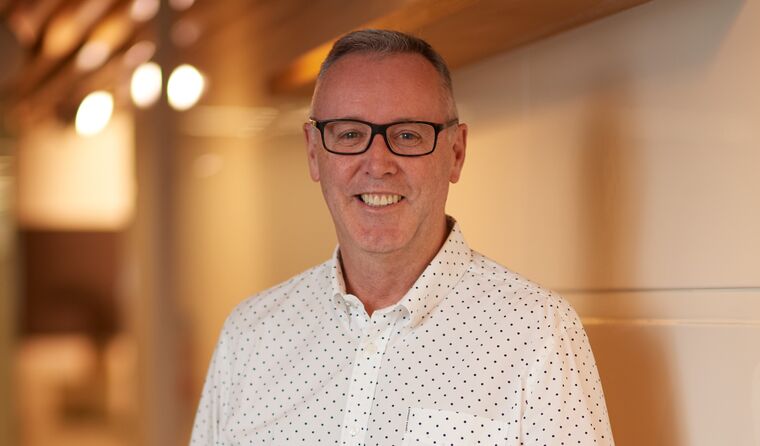Comment
Medicare complexity the real scandal: RACGP CEO
Sensationalist reporting does the extraordinary, often unsung, work GPs do for their patients an enormous disservice, writes Paul Wappett.
 Even the highest previous estimates of non-compliant Medicare claiming fall well short of the supposed leakage now being reported as fact.
Even the highest previous estimates of non-compliant Medicare claiming fall well short of the supposed leakage now being reported as fact.
As the CEO of the RACGP, I have never worked on behalf of a group of people so committed to their communities and the public good.
Every day in my job, I encounter the extraordinary altruism of our GPs – none of whom go into the job to get rich.
These people offer pro-bono care to Ukrainian refugees not eligible for Medicare. They recruit their family members to staff weekend vaccination clinics just so patients can feel more comfortable when getting immunised. Some have even been known to accompany a patient when they put their dog down, simply for emotional support.
That is why the sensationalist ‘greedy doctor’ narrative that has dominated the media this week has been so distressing.
It is also misleading and wrong.
Let me be clear: anyone who deliberately sets out to rort public money, particularly when it has been set aside for the benefit of sick and vulnerable people, deserves to be prosecuted.
But the rort claim that dominated the narrative is not even shared by the main source for the program, Dr Margaret Faux.
Her own PhD, published in March this year, says the theory that Medicare leakage is ‘principally attributable to misconduct and fraud can no longer be upheld’.

RACGP CEO Paul Wappett says the ‘greedy doctor’ narrative dominating the media this week has been distressing.
Despite recent claims of widespread misuse by doctors and other healthcare providers, instances of proven Medicare fraud are miniscule.
For example, the most recent annual report out of the Professional Services Review – one of four compliance layers doctors accessing Medicare are regulated by – reveals there were fewer than 100 instances of proven inappropriate practice in 2020–21.
The sum total of this ill-gotten money, all of which was recovered, was $24,674,440. To be sure, these cases do not capture every instance of Medicare misuse in Australia, but it is a far cry from the apparent $8 billion being leaked from the system each year.
Even the highest previous estimates of non-compliant Medicare claiming fall well short of the supposed leakage now being reported as fact.
It’s partly why these curiously timed articles, ostensibly supported by a PhD thesis published six months ago that actually estimated Medicare non-compliance was less than half what is now being claimed, feel like a knife through the heart.
It is no secret that GPs have been carrying a heavy load, particularly since the arrival of COVID-19.
From managing COVID-positive patients and offering life-saving vaccinations (despite not being considered ‘front line’), to helping with disasters and the mental health fallout from extended lockdowns, the profession has assumed a lot of additional responsibility.
Many are now struggling with the ongoing pressure this extended reliance has generated, and without adequate support from government are looking to transition into other areas or retire altogether.
Meanwhile, those outside looking in, especially medical students, are also witnessing the systematic erosion of general practice and voting with their feet.
For me, that is the real worry.
It’s why I’m far more concerned about a Medicare system that is overly complex and clearly not fit for purpose than the threat posed by a minority of bad actors in a sector overwhelmingly filled with good, honest people.
Especially as many of the examples contained in the articles are anecdotal or not evidence of fraud at all.
One only needs to read the
most recent Health of the Nation report to recognise the overwhelming evidence that general practice’s current working conditions are not sustainable.
And unlike these recent fraud claims, the evidence is clear, quantifiable, and consistent.
For years, GPs have been warning about the problems with Medicare.
Its absurd complexity and vague item number descriptors. The incentivisation of procedures and short consultations over longer, holistic care.
A punitive approach to audits that are driven by statistical models and developed by people who
simply do not grasp the work GPs do.
When combined with
rising patient violence and a ‘gotcha’ media culture that leaps on any suggestion that there are greedy doctors rorting the system, it is easy to see how some battle-weary GPs may be looking for the exit.
All of which should be terrifying for the general public and front-page news on every paper in the country, particularly with the new Federal Government’s
crucial first Budget only days away.
Because without a strong, healthy, well-resourced general practice sector, our hospitals will be overrun, and Australia’s health and wellbeing outcomes will be severely compromised.
The overwhelming majority of GPs entered general practice to serve their communities, and these reports are an insult to their commitment to public good.
Do not blame them for systemic issues that they have been trying to warn us about for years.
Support them, in the same way that they support us – from the cradle to the grave.
Log in below to join the conversation.
fraud Medicare Professional Services Review
newsGP weekly poll
Health practitioners found guilty of sexual misconduct will soon have the finding permanently recorded on their public register record. Do you support this change?